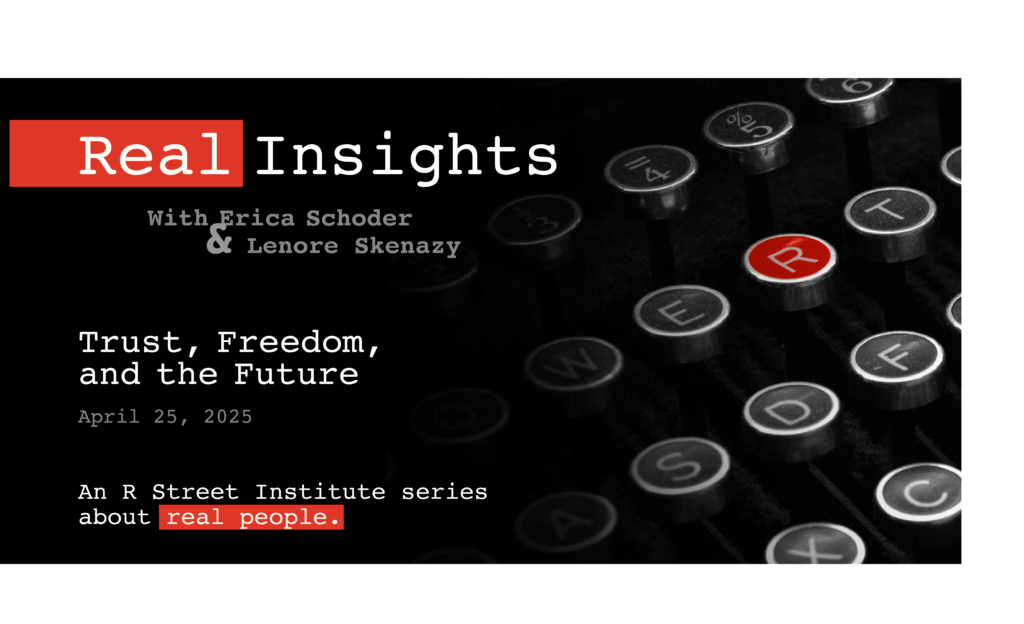The Consent Decrees are at it Again!
For the first time in nearly three years, music licensing has become a hot topic in Washington, D.C. Last time I wrote extensively on the subject was in “Transparency in Music Licensing and the Statutory Remedy Problem,” a paper responding to the controversy surrounding two District Court consent decrees involving Broadcast Music, Inc. (BMI) and the American Society of Composers, Authors, and Publishers (ASCAP), two major performance-rights organizations (PROs).
Why all of the fuss now? There are multiple “inside the beltway baseball” answers to this question, ranging from the content industry’s anger toward a Congress not willing to push reforms that would jeopardize the booming internet economy, to the anti-tech rhetoric of President Donald Trump and Sen. Bernie Sanders, D-Vt.
This said, the answer likely lies with the passage of the Allow States and Victims to Fight Online Sex Trafficking Act, commonly referred to as “FOSTA.” FOSTA made exceptions to the protections for platforms offered by Section 230 of the Communications Decency Act. By passing this legislation, Congress signaled that it is warming up to the idea of regulating the internet. And as the old saying goes, “If you give a moose a muffin, he will want some jam to go with it.”
Thanks in large measure to FOSTA, D.C. is experiencing an anti-technology uproar not seen since the years of the Stop Online Piracy Act and the PROTECT Intellectual Property Act, commonly referred to jointly as “SOPA/PIPA.” This legislation, if passed, would have stifled the internet and sharing economies by restricting how users and creators distribute and share content. The technology and user communities were able to thwart SOPA/PIPA, but with renewed anti-tech sentiment on the Hill, the tides may have turned.
Consent decrees — or agreements between a plaintiff and a defendant to allow the court to resolve a dispute without either party admitting liability — are archaic and go against everything a good free-market advocate stands for. But in the case of music licensing, they serve a vital role.
My first experience with consent decrees was back when I was working in retail. The manager of the store I worked for played music from her iPod over the store speakers until the higher-ups informed her that this was not, to put delicately, legal. Why? U.S. copyright law requires that each business owner obtain permission to play a copyrighted work. This ensures that copyright owners receive fair compensation from the venue playing their work. Business owners obtain such permission in the form a blanket music license from a PRO, like BMI or ASCAP. These PROs ensure that songwriters receive compensation for their work.
While this process may seem simple, nothing is ever that simple.
The BMI and ASCAP consent decrees, which govern the modern PRO system, were established in 1941 to address the anticompetitive practices of collective licensing. Over the years, some called on the government to look into split licensing, or the practice of allowing each songwriter of a piece to have a say in whether that work may be played. This was a dangerous idea. Currently, it only takes one songwriter to say “yes” to grant permission to play a song. If each songwriter receives his or her own right to say “no,” it will become exponentially more difficult for business owners and others to obtain permission to play a song. Think of it like this: You are trying to figure out where to go on a night out with a group of friends. If the entire party minus one friend agrees on where to go, the entire group can no longer go because of that one friend. Lame.
Back in March, Assistant Attorney General Makan Delrahim signaled that the Justice Department’s antitrust division was looking into whether these consent decrees are even operative. There is a lot of merit in looking into the viability of the consent decrees, but the timing here is unfortunate. Reexamining these consent decrees when the entire music copyright-law ecosystem is a barely-sustainable mess risks a game of policy Jenga that could threaten the stability of the entire structure. More importantly, this move contradicts the conclusions drawn from the Department’s two-year review of the BMI and ASCAP consent decrees and subsequent litigation, which defended the decrees and determined that no modification was needed. Why the DOJ is contemplating getting rid of the decrees now is unknown to anyone except Assistant Attorney General Delrahim himself.
Rates matter not only for songwriters, but also for business owners and consumers. R Street will continue to monitor the state of these consent decrees as the assistant attorney general questions their viability in the age of digital streaming.









